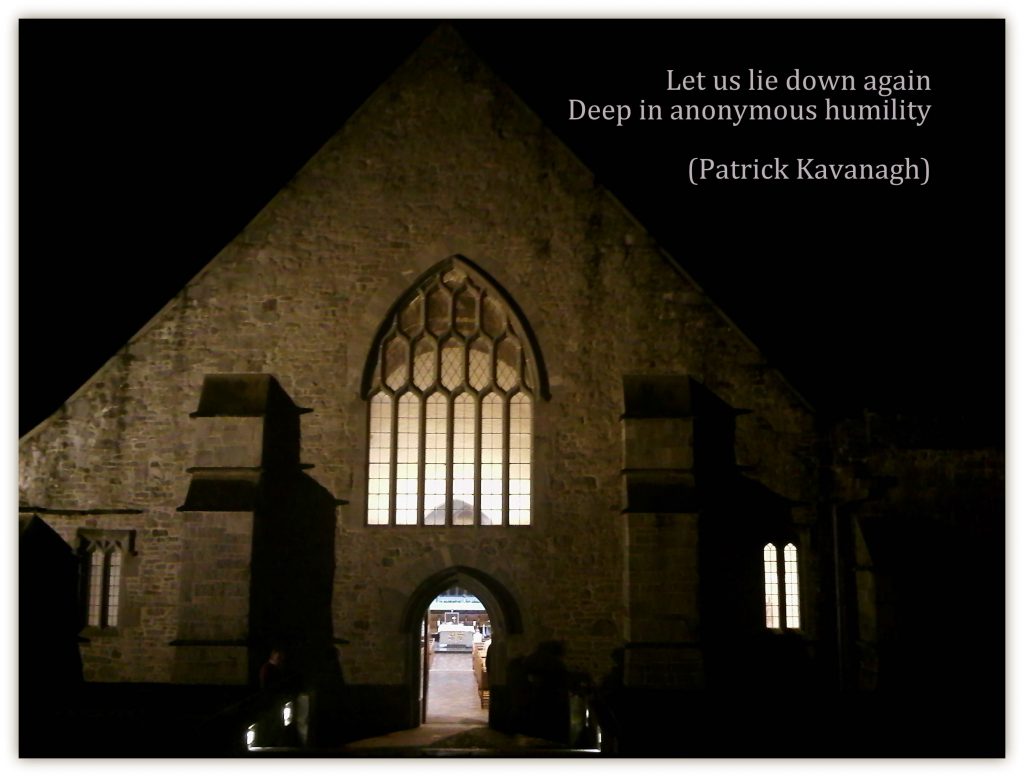
Back in the 1990’s I was involved in the formation of students for the priesthood who were being educated in what might be called a “liberal” institute, though I’m not at all fond of such labels but I don’t know how else to express what I want to say. Most of the students in our Pallottine community would have been identified as “conservative”, some fairly “right-wing” but most were genuinely good and compassionate men who were personally committed to the person of Jesus, the Word of God, to prayer and the wellbeing of other people.
A number of these young men came to us from Youth 2000. They merited the “conservative” tag because they believed in fidelity to the teachings of the Church and to the Pope; their spirituality centred around adoration of the Blessed Sacrament, the Rosary and Divine Mercy. They tended to go on pilgrimage to Medjugorje. Such devotions went down like led balloons in a “liberal” environment and our students found themselves ridiculed and isolated in the place where they were being educated for priesthood.
When they complained to me, I suggested that it was good for them to be challenged and stretched but it seemed they were stretched to breaking point. So, I represented their distress at a meeting of Directors of Formation at the institute. I might as well have used foul language; such was the shock in the face of the President and many of the other Directors. The discussion went on and on and it was basically being said that there was no room in the modern Church for such spirituality. Then one director put into words a question that made sense to me, “are we saying that the many traditional and “conservative” Catholics in Ireland should not be ministered to in a way that is appropriate to them?” An important question for anyone of any Catholic persuasion.
It has always been – what I believe is – my Pallottine instinct to make space for all kinds of expressions of spirituality, prayer and liturgy provided they have Jesus at the centre. Whatever leads people acknowledge Jesus as Lord is of the Holy Spirit who works in all kinds of different ways in different people. “Nobody is able to say, ‘Jesus is Lord’ except in the Holy Spirit. There are many different gifts, but it is always the same Spirit; there are many different ways of serving, but it is always the same Lord” (1 Corinthians 12:3-5
I have my own personal preference in terms of our three Sunday Masses and I am most at home in the holy chaos of the family Mass during which my dominant feeling is one of Love. But serving a parish community is not about my own preferences and I have to become “all things to all people” in whatever way authentic service demands. When I came to this parish it was suggested to me that I should clamp down of the more formal Mass of Latin singing with its “smells and bells”. My instinct was to wait. Externally, it has grown in the number of people attending and internally it has become a real act of worship for me, a moment of transcendence. Puzzled by the number of young people drawn to this Mass I have asked them what it is that attracts them. Some have said it is the only way that Mass should be celebrated. I don’t accept that at all, at all. Others have said that it helps them pray beyond themselves which I think is a valid movement of the Spirit. Our third Mass is very simple, with little or no singing and it attracts a different congregation again.
To me, it’s very important as committed and mature Christians that we do not ridicule another’s spirituality either to their face or behind their back because that can lead to an unhealthy silence and maybe even secrecy. It’s something I’ve seen young men struggle with over the years and, while I don’t have to participate in another’s spirituality, I should respect the spirituality a person has arrived at and accept it in the diversity of charisms that is part of our Pallottine way of life. Our personal spirituality is a central part of our personal identity and crucial to our wellbeing. Having a personal spirituality does not mean that I cannot integrate my particular spirituality with our Pallottine charism. An open community of mutual respect is a great place for flourishing. We are not in competition with each other but we may actually be fighting against God when we dismiss, reject or ridicule the spirituality He has given to another.
